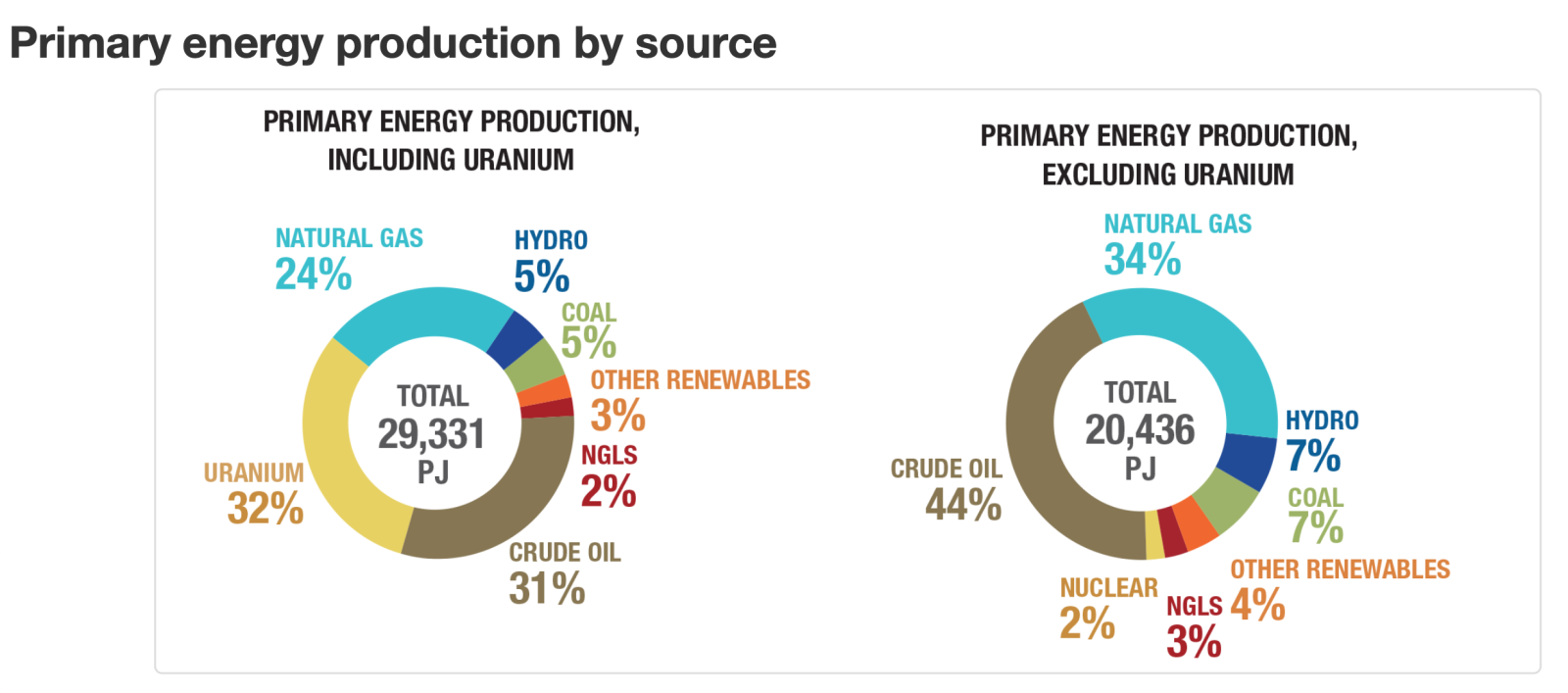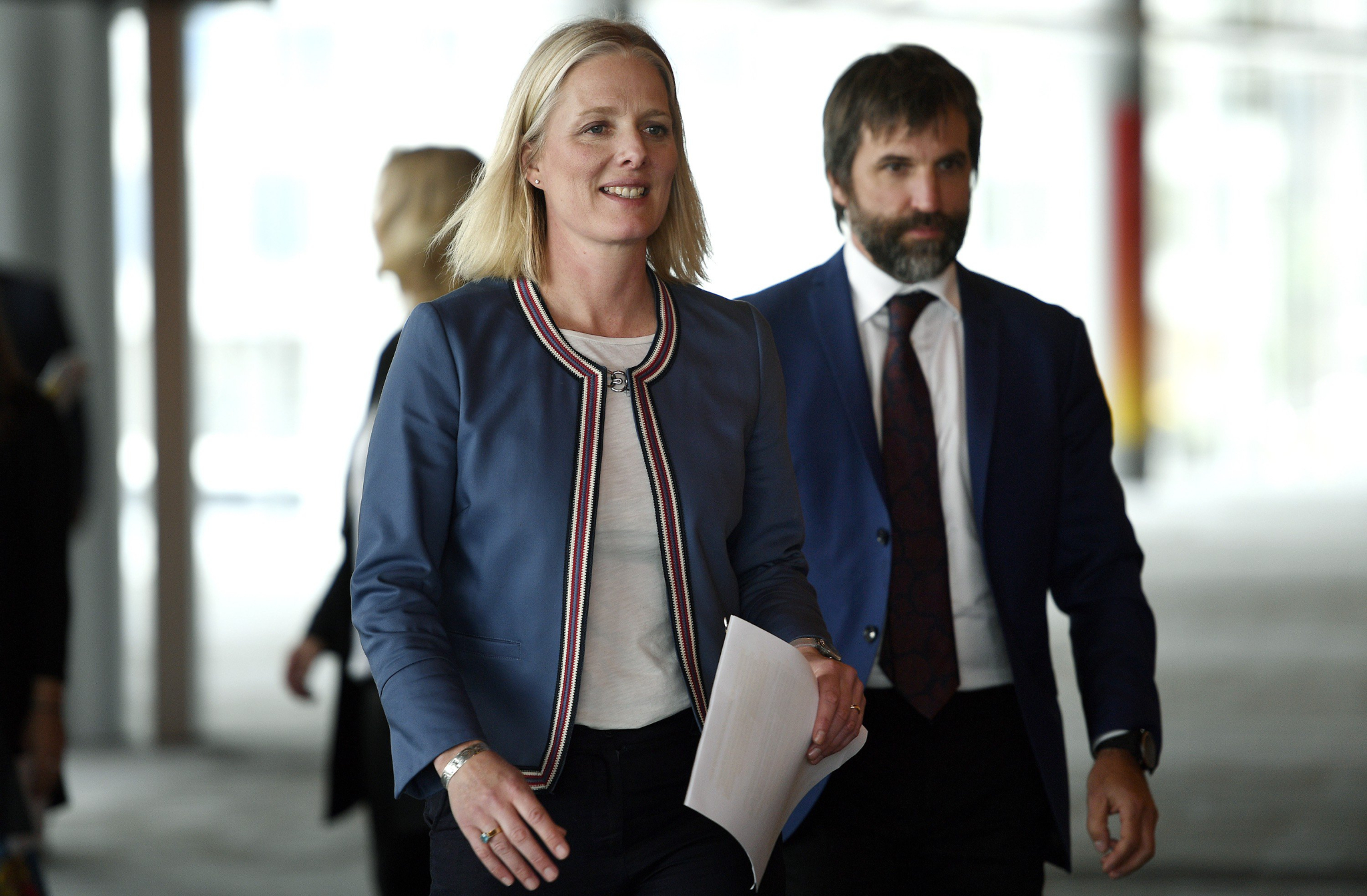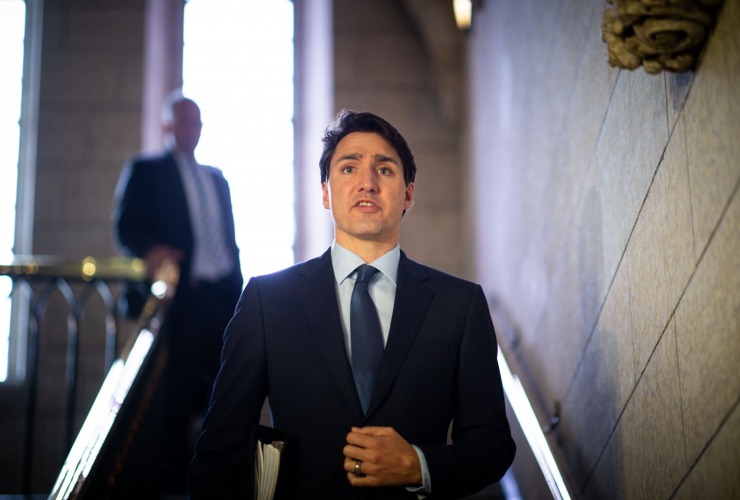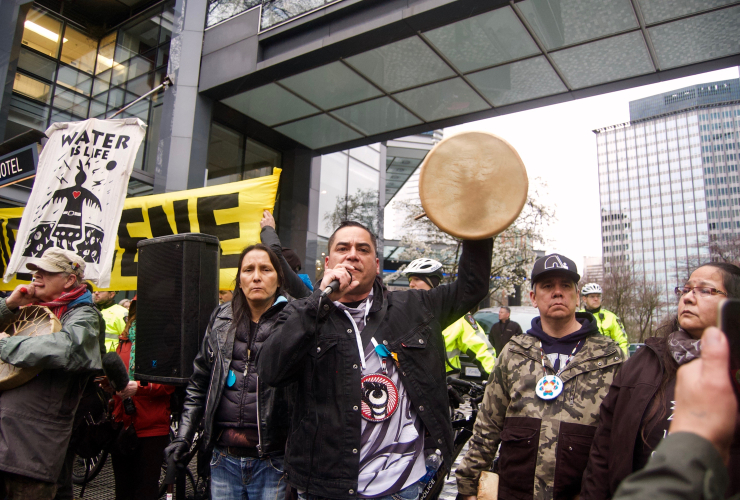When the prime minister's long-awaited announcement approving the twinning of the Trans Mountain pipeline finally came, few citizens concerned about environmental hazards and climate change could cheer it.
Nor could many Indigenous communities applaud — so many of those that signed agreements with the project felt enormous pressure to salvage at least some benefit, skinny as it might be.
The whole exercise has both exhausted and galvanized opponents, and few minds will be changed by any commentary.
And yet.
There's an extraordinarily compelling case to be made for Trudeau's climate plan, and how the TMX pipeline fits into the bigger picture.
For many Canadians, blocking TMX became synonymous with winning the climate war. If you support the pipeline, you're a sellout. If you don't, you're a climate hero.
If only things were that simple.
Canada’s challenge is that, while the carbon calculus is unforgiving, so are the economic and political realities.
As tempting as it is to imagine that the public is on board to address climate change, all the evidence suggests the opposite. Voters give lip service to climate change, but never at the expense of jobs.
Rachel Notley is out.
Kathleen Wynne is out.
Gone are their ambitious climate plans.
The same fate awaited Trudeau if he had cancelled TMX. Nothing else would have mattered — he'd have been gone by November, along with everything his government has achieved.
Yet there's an even better reason to look beyond TMX alone as the sole environmental litmus test.
Cancelling a pipeline has enormous symbolic appeal. Yet in terms of greenhouse gas (GHG), it's a wash, as the global supply chain would simply reshuffle and move ahead as if nothing happened.
We have to do better than rally around symbols. We have to do the much harder work of changing the game.
The fight we can't afford to lose
The real front line in the climate war is our transition to clean energy, as demand for all forms of energy, including oil, continues its inexorable rise.
This is the fight the world can’t afford to lose, and we’re losing it.
In 2018, the International Energy Agency issued a stark warning that governmental neglect of renewable energy constitutes a grave threat to the Paris Accord. The IEA estimates that clean energy will only account for 18 per cent of world consumption by 2040, well below the 28 per cent needed to meet the Paris goals, and global investments have stalled.
The chart below, from Natural Resources Canada, tells the story: only eight to 11 per cent of our energy production is in clean energy.
This is the chart we must change dramatically, and very quickly.
It's here, in the fight for clean energy transition, that the Canadian government has amassed a stunning war chest of more than $60 billion, with billions more on the way.

The plan is to add up to $10 billion in TMX-generated tax revenue to this fight. In a nutshell, the government aims to help provide consumers and industry with affordable clean alternative options to complement and accelerate carbon tax impacts, while supporting jobs and investor confidence.
The $70-billion plan
Here's what the Canadian government has already committed to do, according to the Department of Finance:
- $26.9 billion in green infrastructure over 12 years
- $28.7 billion in public transportation infrastructure over 10 years
- $2 billion in the Low Carbon Economy Fund over two years, starting in 2017-18
- $1.5 billion in the Oceans Protection Plan over five years, starting in 2017-18
- $1.3 billion in the Nature Legacy over five years, starting in 2018-19
- $2.3 billion in clean technology funding over five years, starting in 2017-18
- $1.0 billion in energy efficiency initiatives through the Federation of Canadian Municipalities in 2018-19 through investments in green infrastructure and the development of a Pan-Canadian Framework on Climate Change
The government is also:
- Putting a price on pollution and investing 10 per cent of the proceeds to help improve efficiency and adoption of new technologies
- Regulating reductions in methane emissions in the oil and gas sector by 40 to 45 per cent by 2025
- Phasing out coal-fired electricity by 2030
- Making historic investments through the Oceans Protection Plan
- Establishing new marine protected areas on the British Columbia coast
- Providing $167.4 million for the Whales Initiative, and an additional $61.5 million to address threats to the Southern Resident Killer Whale population
- Committing $626.3 million to respond to recommendations from the National Energy Board, and to implement accommodation measures to address the concerns of Indigenous groups
The Finance Department estimates another $500 million annually in corporate tax revenue will be generated from oil producers accessing the TMX pipeline, and all of it will be committed as new funding to the clean energy transition. Even at a more conservative $300 million annually over the next 20 years, that would take government environmental commitments to $70 billion over 20 years.
The TMX math works whether or not the public company that will operate it ever sees a dime in profits. The price differential between Western Canada Select (WCS) and West Texas International (WTI) is long-standing and persistent. The new TMX pipeline will move between 400,000 to 600,000 barrels per day, most of which, according to sources familiar with the project, has already been contracted for 15 to 20 years.
Those figures also line up with Conference Board of Canada estimates and other expert analyses.
Transit, electrification, energy efficiency, research and development
The government's climate commitments constitute an unprecedented public investment in transit, infrastructure and renewable energy, all in addition to the national carbon tax, and all of which are proven to drive down GHG emissions.
In addition to transit infrastructure, we know there is already huge and growing demand for hybrid and electric vehicles, which need charging capacity across the country. We need electrification across the country, and improved building systems — heating, air conditioning and energy-saving building materials. We need to drive down the cost of wind and solar power, and increase the supply of both. And we need to continue to drive down emissions from existing fossil fuel sources.
Pricing pollution is far more effective when consumers and industry have a competitive clean-energy alternative.
Driving down carbon emissions is much more complex and nuanced than stopping a pipeline. It will cost us billions, and the oil industry will pay a substantial part of it, through taxes on their oil production.
There is so much more to reaching our Paris climate goals than a single pipeline.
Our task as a nation is this:
To meet our commitments, Canada needs to reduce annual GHG emissions by 219 megatonnes.
According to the parliamentary budget officer, the proposed federal carbon tax alone will give us a drop of 140 megatonnes. We need to find another 79 megatonnes somewhere, or send carbon taxes through the roof, delivering huge shocks to the economy.
The Liberal plan is to push that 79-megatonne number down using a spectrum of transportation, electrification, building-innovation and infrastructure initiatives, funded by general revenues, long-term debt, and TMX-generated taxes.
That $70 billion will go a long way to getting 79 megatonnes to zero, maybe even further.
Politics and the art of the possible
Here's the dilemma.
We could cancel TMX tomorrow. The global network would recalculate supply routes faster than Google Maps, with no measurable GHG impact.
Canadian investor confidence would plummet, and in this challenging international environment Canada could enter recession very rapidly, eroding the government's ability to meet its existing climate commitments.
Trudeau would lose the next election, and Andrew Scheer would stop the Liberals' climate plan in its tracks, just as Alberta and Ontario have done.
That $70 billion for clean energy? Gone.
The carbon tax? Gone.
No environmentalist or supporter of Indigenous communities wants to see the oil industry's relentless expansion continue. But look at where we are.
We have $70 billion — $70 BILLION — committed to the clean energy transition and conservation.
Northern Gateway is dead. Energy East is dead. Keystone is on life support. British Columbia’s fragile north coast has been protected from oil tanker traffic. We have a drilling moratorium in the Canadian Arctic. The NEB has been replaced by a new Canadian Energy Regulator, with an Impact Assessment Agency to appraise the climate impact and consult with First Nations on new projects. Some $1.5 billion is being invested in the Oceans Protection Plan to improve marine safety and protect Indigenous and other coastal communities.
There's no way to describe this other than as a revolutionary, ambitious, comprehensive and powerful climate and conservation plan that makes compromises to preserve jobs and investor confidence.
Are there flaws? Of course there are, and will be. Specifically, this model could and should better prioritize Indigenous land interests and self-determination. The courts have yet to be heard on Indigenous consultation.
And the sooner we address oil and gas tax policies and subsidies, the better.
But in climate terms, this is a good bargain, maybe the best achievable plan we'll see.
It will set the course for decades into our children's and grandchildren's future.
This is the most momentous opportunity in Canada's climate history. The decisions we make now as a nation have consequences like no others.
Time is not on our side.
This chance won't come again.
Editor's note: Headline was changed at 9:15 a.m. PT, June 26, a couple of hours after publication
The "drug dealers defense" is
The "drug dealers defense" is perfectly correct. You're attempting to make it a moral failure, but the economics of drug-dealing and energy markets are just scientific facts, and will remain whether you consider it morally objectionable or not.
Fact: the price goes up and down all the time, by itself, whether one production facility is successfully opposed or not. It's gone up to $140/bbl and down to $40/bbl in the space of a year; there was very little effect on consumption. Far less than in drug-price changes! Drugs are a luxury, gas for your farm tractor or diesel for your container ship a necessity.
What's in common is that driving up the price (if a pipeline opposition could, which you cannot demonstrate) brings out new producers and new technology, leading to LOWER prices. The price of cocaine was pushed up by law enforcement, so they invented crack, and a cocaine high got way cheaper. The price of oil kept going up through the 90s and everybody was talking about "peak oil" the stuff running out. So they invented "fracking" ("crack" was taken) and the price of oil cratered.
If you want them to improve fracking and drive the price down further, just keep opposing oil pipelines. At one remove, it's ironically you that is driving the development of new oil technologies, not the journalist.
Read up on the OPEC Oil
Read up on the OPEC Oil Embargo in 1973.
https://en.wikipedia.org/wiki/1973_oil_crisis
Energy rationing, energy conservation, lower speed limits, smaller cars, home improvement programs, greater interest in renewable energy, the rise of Japanese auto makers, a shift away from oil-intensive industries, etc.
In my town, people drive everywhere they go. A habit that would not last long with gas at $25/litre.
The author makes some good
The author makes some good points however we do not have the time for political convenience. The issues documented in the book "Shopping for Votes" indeed need to be exposed, and bold leadership doing so and yes a WAR EFFORT which explicitly supercedes political affairs as usual. The Napoleonic Civil code describes due diligence patriarchally but in a manner which is relevant to these times.
I am reading this article and
I am reading this article and the lengthy string of comments it sparked for the first time. Not sure how I missed on first appearance. However, distance and time allows for a certain detachment.
I have almost given up on the race to "beat" climate change. Humanity has willy nilly lost that race, several generations ago - before we even knew there was a race.
Our only hope for survival is to hunker down, endure, adapt, re-group and re-think.
The state of play is obvious, we know there is a crisis but there are a billion complexities, and huge collective global effort required to address it. Given what we know of the human sins of greed, competitiveness, lack of cooperation, epidemic failure of communication, etc. ad infinitude. I have legitimate doubts about our ability to save ourselves. Perhaps we don't deserve it.
Nevertheless, I have strange optimism that the human brain's unquenchable search for connection, for solutions, for innovative survival; that given half a chance, some remnants, wiser than we are, may survive to re-build a better world from the ashes we are creating. That optimism is very conditional. It pretty much requires restructuring the human race. If we thought addressing climate change was monumental, the pre-condition of changing humanity is almost beyond calculation or imagination.
I believe that our all too fallible species has been, or should be, reduced to humility by the self inflicted problems we must solve.
What we actually have is a significant percentage of our species that are fatalistic about the future and not even inclined to worry about it, and another percentage that can do nothing but break into a cold sweat and full bore linear panic, and yet another terminally irritating bunch who retreat, bellowing with incoherent rage against the future, thrashing around trying to restore the smug certainty of business as usual.
That leaves a pitiful percentage applying the best their brains can produce to find solutions; only to be attacked on all sides by the aforementioned ...(hmm, can't think of an appropriate, family friendly term for the "deniers")
All I know is that I'd prefer to be among the pitiful few, following threads through the maze, than one of the bellowing, wilfully ignorant, panicked herd.
Trans; Mountain isn't just
Trans; Mountain isn't just about emissions, it's about the trampling on indigenous rights, about the danger of more tanks in a neighbourhood with people who could not escape an explosion. It's about the fire department saying they could not deal with a fire at the farm. It's about ripping into the earth, destroying trees, waterways, salmon breeding grounds. And it's about pouring billions of our dollars into a project that isn't even economically sound while not spending on adaptions that must be made in order to cope with the impending disasters. The severe weather predicted by scientists for over 30 years is coming at us harder and faster than they predicted. And we are totally unprepared. The choice is that our children will be subjected merely a disastrous future or an absolutely catastrophic one. Read the science.
Wow, I have never seen so
Wow, I have never seen so many well thought out comments about an opinion piece. Right, the rest of the country just does NOT get BC’s concern about tankers (Pipeline). All we can do now is to vote as many Greens in as possible, and independents, so we don’t get a majority government! We need to start listening to each other and try to solve this crisis. Maybe BC can prove to Canadians we need pro rep (remember 2015 is the last 1st. past the post election promise?), science based solutions and folks far off in Ottawa that listen. I’m voting for Elizabeth May! Cheerio from Salt Spring Island.
- ‹ previous
- 2 of 2






Comments